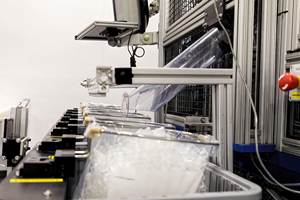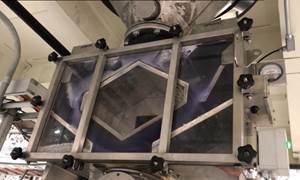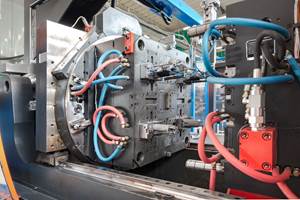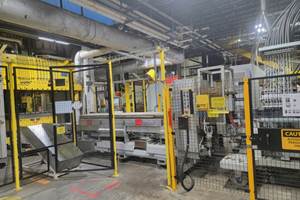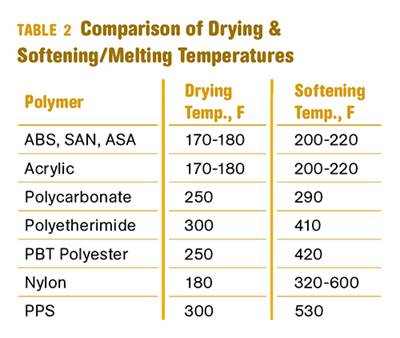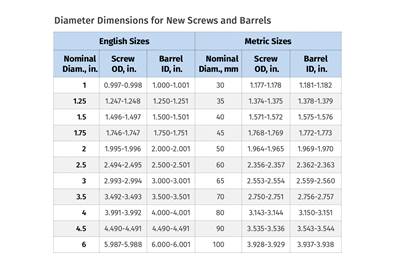Recycling offers a new life to a used product. For Unifi, Greensboro, N.C, it also breathed new life into its business as a textile leader. Unifi is a global textile provider and one of the world’s leading innovators in manufacturing synthetic and recycled performance fibers. The company has 3000 employees with manufacturing facilities worldwide.
Through REPREVE, one of Unifi’s proprietary technologies, Unifi has transformed more than 10 billion plastic bottles into recycled fiber for new apparel, footwear, home goods and other consumer products. Building from that momentum, Unifi is targeting 20 billion bottles recycled by 2020 and 30 billion bottles by 2022.
REPREVE is a brand of recycled fiber and pelletized resin, made with up to 100% recycled materials including pre-consumer and post-consumer waste. Unifi works with brands such as Ford, Patagonia, Dockers, Haggar, New Balance and Quiksilver, from surfwear to outdoor gear to car interiors.
Plastics Technology took a closer look at how this textile maker got into the recycling business.
TRUE CALLING
The great-great-grandson of a cotton-mill owner, George Allen Mebane IV founded Unifi in 1971 with a goal to disrupt how textiles are made. The company saw plenty of success for years, but in the 1980s the “polyester fad” declined. Unifi doubled down on more advanced technology as the market discovered new uses for polyester and nylon. For the next 20 years, Unifi enlarged its global footprint and diversified, focusing on high-quality synthetics.
But it wasn't until 2007, with the development of REPREVE recycled fiber, that Unifi found its true calling. It started as a way for the company to recycle its own manufacturing waste. But the firm soon realized the enormous potential impact if the company also recycled PET bottles.
“So, instead of us just going through and producing a standard grade of textiles, going into the REPREVE brand allowed us to differentiate ourselves from the competition,” says Charlie Schwarze, global director of REPREVE Recycled Business.
Unifi evolved into a synthetic manufacturer focused on sustainability with the REPREVE brand, which has become the fastest growing segment of sales within the company by revenue numbers.
HOW THE PROCESS WORKS
Schwarze says that in the U.S., Unifi works with communities and material recovery facilities (MRFs) to recycle the PET bottles. The company also works with direct sources of bottles such as a bottle distribution facility from a soft-drinks company. Unifi also engages with event venues like stadiums and concert halls to recycle bottles directly.
The bottles are sent to Unifi’s REPREVE Bottle Processing Center in Reidsville, N.C. The 150,000 ft² center processes more than 2.2 billion PET bottles each year that will eventually become recycled performance fiber. The front-end separation equipment comes from Bulk Handling Systems (BHS), Eugene, Ore.; and nine optical units with in-flight sorting technology are from National Recovery Technologies, Nashville, Tenn., a wholly owned subsidiary of BHS. Optical separation units remove non-PET plastics from the raw-material stream and can process 22,000 lb/hr.
Italy’s Amut Spa (North American office in Vaughan, Ont.; designed, built and installed the PET washing line. A separate Amut process removes shrink-sleeve labels from the bottles. Autosort Flake equipment from Tomra, Sacramento, Calif., sorts the washed and chopped flake a final time to ensure that impurities have been eliminated and color and flake size are consistent. Unifi employs about 150 in the bottle processing center and leans heavily on its employees to ensure the quality of its recycled PET.
“Technology has gotten us to a certain point, but as PET packaging evolves—lighter weight, more non-clear bottles, more shrink labels, and inclusion of metal in things like spray pumps—our employees that keep the line running and hand-sort bottles are the keys to success in terms of recycled PET quality,” Schwarze says.
The production flake is transported to the REPREVE Recycling Center in Yadkinville, N.C., where it is extruded and pelletized to make what the company calls “chip.” Unifi also sources material directly into the REPREVE Recycling Center, including pre-consumer yarn material as well as fabric scraps. These can be combined into what Unifi calls a hybrid blend of pre-consumer and post-consumer waste, which is extruded into chip and then into yarn.
The center occupies more than 105,000 ft² and houses three Starlinger recoSTAR Universal units and one recoSTAR Dynamic unit. (Starlinger’s U.S. office is American Starlinger-Sahm, Fountain Inn, S.C.). Of the four Starlinger units, three are hybrid-capable, meaning they can process both post-industrial fiber material and post-consumer bottle material. There’s one machine dedicated to just post-consumer bottle flake. The company also utilizes two Starlinger ViscoSTAR solid-state polycondensation units for decontamination and I.V. increase when necessary.
Recycled material is blended, melted and turned into REPREVE pelletized resin, which is loaded into silos, each of which holds 1 million lb of chip. Next, the resin heads to Unifi’s fiber-spinning plant, where Unifi uses 36 extruders from Oerlikon Textile, Charlotte, N.C., to convert resin into REPREVE partially-oriented yarn (POY). Unifi then ships the yarn to its customers.
Schwarze says Unifi can solution-dye the material, which allows addition of a pigment or color in the yarn at the POY phase. In Reidsville, Unifi also has a packaged dye facility that can dye the yarn in various colors. The choice of dyeing approach depends on customer needs and the economics that go into selling that yarn.
The yarn then goes to various mills that will knit or weave the fiber into different end products. And then it proceeds to cut and finishing operations, which ultimately ends up on store shelves and branded products.
Schwarze says the company also sells some of its flake and chip material into the open market for various polyester end-uses. Unifi sells some material into the strapping market and sells flake PCR for thermoformed sheet as well. “It’s a very versatile material that can go into almost any polyester end-market,” he says.
RECYCLING DEMAND
The company says its recycled fiber is a high-quality drop-in replacement for virgin fiber that is traceable and certified. Increasing the amount of recycled material in products is becoming more widespread among all different types of brands, which is great news for a company like Unifi. “Generally, what we’re seeing is that younger consumers actively seek out and purchase from brands they know to be socially and environmentally responsible. Millennials are drawn to brands that reflect their personal values,” Schwarze says.
With less material now being sent over to China, Schwarze says the polyester end-markets for recycled bottles remains strong. While there has been some extra material in the last 18 months since China’s National Sword policy went into place, it has been offset by a lot of growth in the recycled PET industry in the U.S.
Some minor challenges remain. For example, when the company recycles bottles at its Reidsville operation, they get non-PET by-products, so the company is becoming creative in finding ways to move those materials.
With those big goals to recycle 20 billion bottles by 2020 and 30 billion bottles by 2022, one of the challenges is that as of 2016, the U.S. has less than a 29% recycling rate for plastic bottles. As a result, Unifi is looking to get the recycling message out by various partnerships to boost recycling rates at home and through direct recycling of materials from event venues and universities.
For instance, Unifi announced a long-term partnership with the Pac-12, with Unifi serving as the Founding Sustainability Partner of Pac-12 Team Green and as a sponsor of the Pac-12 Sustainability Conference. Unifi will provide annual grant awards to all 12 of the Conference’s member institutions to promote campus zero-waste activities and circular-economy programs. Unifi will work with The Pac-12 and Pac-12 Networks, creating custom content and media assets to feature sustainability programs and support efforts to recycle billions of plastic bottles into fiber, and will serve as an official sponsor for all Pac-12 championship events.
“At Unifi, sustainability is a core component of the work we do and who we are,” says Richard Gerstein, executive v.p. of premium value-added brands and global chief marketing and innovation officer at Unifi. “While we have recycled more than 13 billion plastic bottles into REPREVE polyester products, including athletic shoes and apparel, we recognize the need to create a paradigm shift in recycling rates in the U.S. to keep even more bottles out of landfills. Working alongside the Pac-12, our goal is to expand this undertaking to our universities, who are taking a leading role in educating and changing behaviors.”
Unifi has also partnered with several NFL teams, the NBA and the PGA by producing apparel and headwear from REPREVE recycled fibers and has sponsored co-branded Repreve recycling bins at the events. For instance, at the 79th annual PGA Wyndham Championship in Greensboro, N.C., in August, Unifi partnered with recycler Republic Services to place 300 co-branded REPREVE recycling bins throughout Greensboro's Sedgefield Country Club. With the participation of tens of thousands of Wyndham Championship attendees, an estimated 1.8 tons of plastic bottles were collected, recycled and diverted from landfills.
Unifi isn’t afraid to invest in new technologies, too. The company offers technologies such as moisture wicking and thermal control that allows them to include performance benefits on top of eco-friendly fibers.
“We will continue to invest heavily in both innovation and technology,” Schwarze says. “From a technology standpoint, we are always exploring the next-generation equipment to be able to provide better quality to our customers.”
The REPREVE Bottle Processing Center has been in operation for only two years. Schwarze says the firm will continue to invest in technology for that facility to develop a higher quality flake that allows it to use more recycled content in its end products. And the REPREVE Recycling Center is looking into developing more cost-efficient and better end-product material that can use a higher percentage of post-consumer recycled materials in its yarns.
“As we continue to look at different technologies, we’re not afraid to invest,” Schwarze says. “And that’s what really started the REPREVE brand and kept us relevant in the early 2000s when a lot of textile manufacturing in the U.S. went to Asia and Central America. With REPREVE being a large part of what Unifi is, it’s about investing in sustainability. Innovation and investment in disruptive technology is in our DNA, and we will continue to do that as we evolve as a company.”
Related Content
As Currier Grows in Medical Consumables, Blow Molding Is Its ‘Foot in the Door’
Currier Plastics has added substantial capacity recently in both injection and blow molding for medical/pharmaceutical products, including several machines to occupy a new, large clean room.
Read MoreDeDuster Systems Cleans Up rPET Sheet
rPlanet cut its gel count drastically—allowing it to sell more sheet at prime prices—after installing a DeDuster system.
Read MoreMolder Opts for Machine Flexibility for Complex Jobs
AE Plast opted for tiebarless multimaterial Engel victory machines as it took on complex parts for the appliance and power tool market, including a 3K housing for Dremel’s rotary tool.
Read MoreLFT-D Thrives in Automotive and Other Durables
Teijin Automotive acquires its 10th direct long-fiber thermoplastic system as demand for this technology soars.
Read MoreRead Next
People 4.0 – How to Get Buy-In from Your Staff for Industry 4.0 Systems
Implementing a production monitoring system as the foundation of a ‘smart factory’ is about integrating people with new technology as much as it is about integrating machines and computers. Here are tips from a company that has gone through the process.
Read MoreWhy (and What) You Need to Dry
Other than polyolefins, almost every other polymer exhibits some level of polarity and therefore can absorb a certain amount of moisture from the atmosphere. Here’s a look at some of these materials, and what needs to be done to dry them.
Read MoreTroubleshooting Screw and Barrel Wear in Extrusion
Extruder screws and barrels will wear over time. If you are seeing a reduction in specific rate and higher discharge temperatures, wear is the likely culprit.
Read More

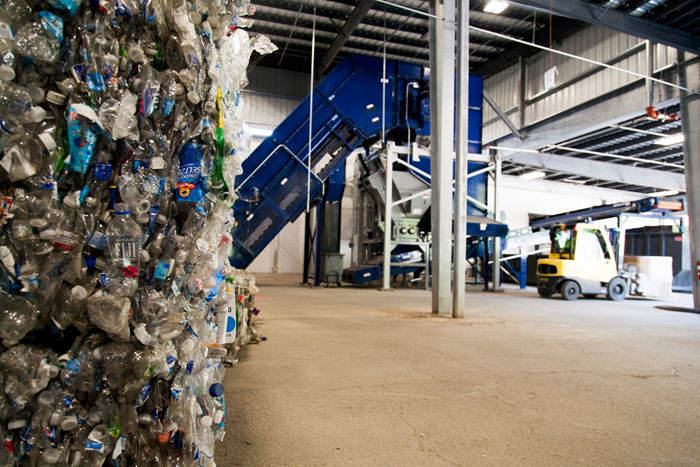
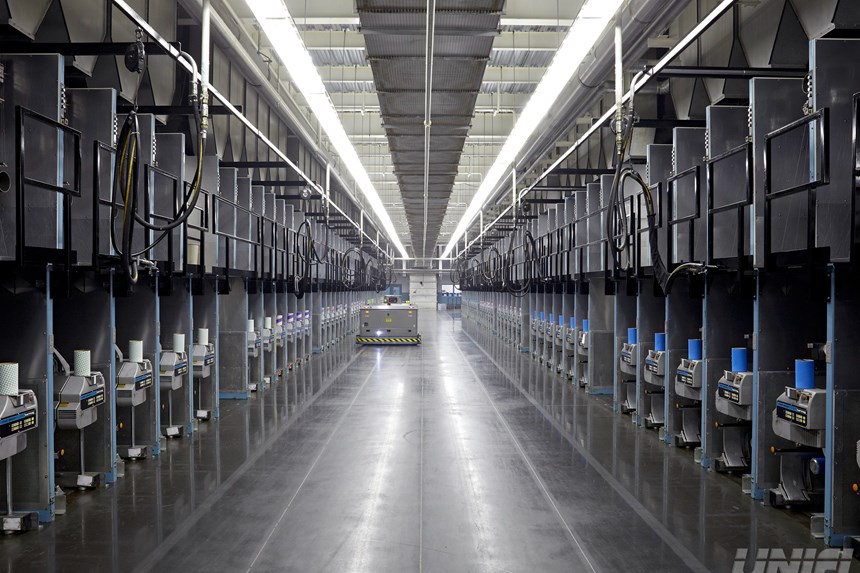
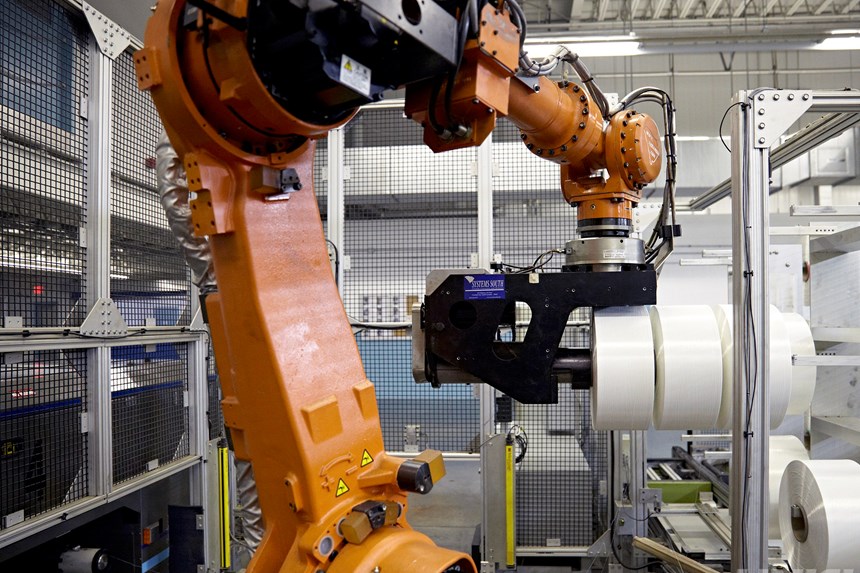
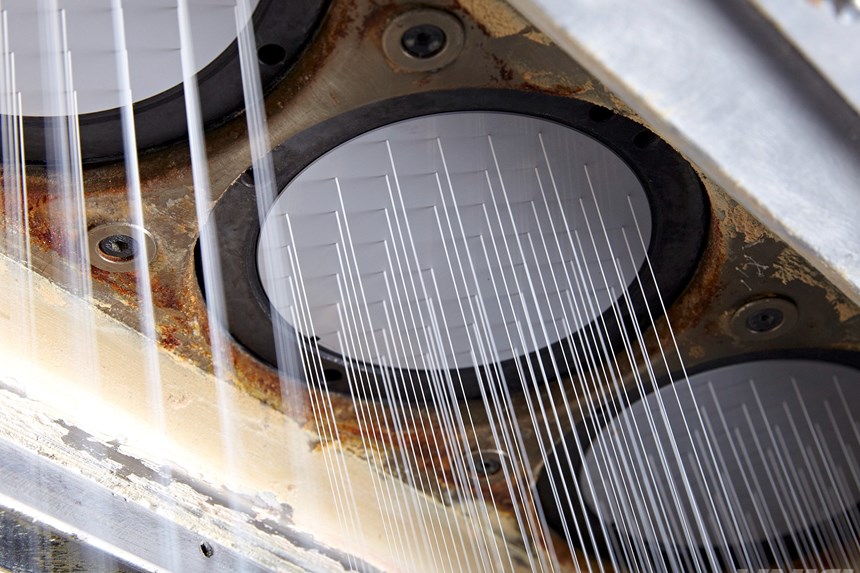















.png;maxWidth=300;quality=90)






